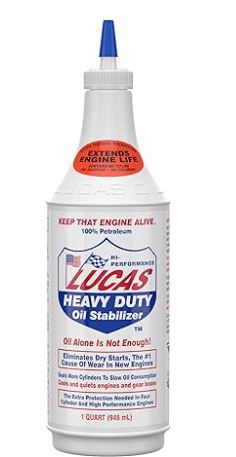Lucas Engine Oil Leak Additives Review – Does It Really Work?
When it comes to maintaining your vehicle, engine oil leaks can be a significant concern. Not only can they lead to decreased engine performance, but they can also result in costly repairs if left unaddressed. This is where Lucas Engine Oil Leak Additives come into play. But do these additives really work? In this comprehensive review, we dive deep into the effectiveness of Lucas Engine Oil Leak Additives, exploring how they work, user experiences, and whether they are worth your investment.
What is Lucas Engine Oil Leak Additive?
Lucas Engine Oil Leak Additive is a specially formulated product designed to stop and prevent engine oil leaks. This additive is compatible with a variety of engine oils, making it a versatile solution for different types of vehicles, from passenger cars to trucks. 
Key Features:
- Seal Conditioning: Lucas Oil claims that their additive can rejuvenate worn seals and gaskets, which are often the culprits behind oil leaks.
- Versatility: It can be used with both petroleum and synthetic oils.
- Ease of Use: The product can be added directly to your existing engine oil without the need for an oil change.
How Does Lucas Engine Oil Leak Additive Work?
The primary mechanism behind Lucas Engine Oil Leak Additive is its ability to restore flexibility and size to worn seals and gaskets. Over time, these components can become brittle or shrink, leading to gaps that allow oil to escape. By conditioning these seals, Lucas Oil Leak Additive helps to close these gaps, effectively stopping the leak.
Application Steps:
- Check Oil Level: Ensure your engine oil level is adequate.
- Add the Additive: Pour the Lucas Oil Leak Additive into the engine.
- Run the Engine: Let the engine run for a few minutes to circulate the additive throughout the system.
- Monitor for Leaks: Check for a reduction in oil leaks over the next few days.
User Experiences and Reviews
To gauge the effectiveness of Lucas Engine Oil Leak Additive, we scoured various automotive forums and customer reviews. Here’s a summary of what we found:
Top Engine Oil Additives for 2024

Positive Feedback:
- Many users reported a noticeable reduction in oil leaks after using the additive.
- Some mentioned that their engine ran smoother and quieter.
- A number of reviews highlighted the cost-effectiveness of the product compared to mechanical repairs.
Negative Feedback:
- A few users did not see any improvement, especially in cases of severe leaks.
- Some mentioned that the product worked temporarily, requiring reapplication.
Pros and Cons of Using Lucas Engine Oil Leak Additive
Pros:
- Cost-Effective: Significantly cheaper than professional repair services.
- Ease of Use: Can be easily added to existing oil without any special tools.
- Compatibility: Works with a wide range of engine oils.
Cons:
- Temporary Solution: May not be effective for severe leaks or heavily damaged seals.
- Varied Results: Effectiveness can vary depending on the condition of the engine seals.
Is Lucas Engine Oil Leak Additive Worth It?
Based on our research and user feedback, Lucas Engine Oil Leak Additive can be an effective solution for minor to moderate oil leaks. It offers a quick, affordable, and easy-to-use option for car owners looking to mitigate leaks without immediate mechanical intervention. However, for more severe leaks, a professional assessment and repair might still be necessary.

Conclusion
Lucas Engine Oil Leak Additive stands out as a practical product for addressing minor oil leaks and extending the life of engine seals. While it may not be a permanent fix for all leak issues, it provides a valuable tool in a car owner’s maintenance arsenal. If you’re dealing with an oil leak and looking for a cost-effective, easy-to-use solution, Lucas Engine Oil Leak Additive is worth considering.
Do you have experience with Lucas Engine Oil Leak Additive? Share your thoughts and results in the comments below!
Related Articles:















